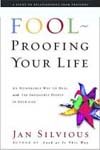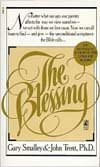Welcome to the human race.
To struggle with anger is pretty common, but also pretty
disturbing. We don’t like who we are
when we succumb to the emotion of anger and do and say things we regret
afterward. There is a lot of talk about
‘anger management’ and a lot of comedy written to poke fun at angry
people. The reason is we display our
foolishness when we get angry. There is
such a thing as righteous anger, but as human beings our anger – even if it
starts out as ‘righteous’ or ‘understandable’ doesn’t tend to stay righteous
very long. Our selfishness starts to
show when we allow anger to get ahold of us.
But, what are we to do? How do we
turn the tide on that powerful emotion and curtail its destructive
undercurrents?
It’s good to ask ourselves some things in relation to our
anger. What is the root of our
anger? Said to be a secondary emotion,
anger usually is seen when really underneath we are hurt, frustrated, fearful, or
in pain. Anger is the easy ‘go to’
emotion that is generally accepted by society – yet it can be so damaging
destroying relationships and worse.
Anger is a good reason for us to start and ponder, what is
it that I want so badly that when I didn’t get it I became angry? What is it specifically that has ‘pushed our
buttons?’ Sometimes in processing
exactly what the issue is we can learn a lot about ourselves.
My very wise mother once, when we were observing a child
having a bit of a temper tantrum, said to me, “don’t you ever feel that
way?” “Well, yes, I said.” She replied, “little children can’t hide what
they feel.” As adults we can smile at a
two-year old having a temper tantrum and understand that a part of childhood is
coming to grips with the fact that the world doesn’t revolve around us – no
matter how we feel! But as adults we
tend to mask all those very raw self-absorbed feelings with other things. Anger causes us to look at ourselves and see
what may need some “soul work” in our own lives?
Even if we are absolutely wronged, we can turn the tide of
resolving our anger by considering that if we take an opportunity to get the
focus off of ourselves in the matter, we may be able to catch a glimpse of what
might be going on in the inside workings of the other person. If they sinned against us, we may do well to
consider that things are evidently not good in their heart and their life. While it doesn’t erase the harm done, it does
allow us to have some compassion for their ‘lost state’ or ‘dark place’ or
titanic struggle that may be going on with the other person. When we can begin to have a little
compassion, our hearts can start to change.
In Paul's letter to the Ephesians (4:26NLT), he says, "don't sin by letting anger gain control over you." Don't let the sun go down while you are still angry."
The principle here is that if we allow our anger to smolder - keeping the recording going over and over in our minds -it can gain control over us and the results can be devastating. In taking steps to resolve our anger - by asking God to come and begin to change our hearts - then we can avert future disaster and grow in stature as a kinder more compassionate human being.
In Paul's letter to the Ephesians (4:26NLT), he says, "don't sin by letting anger gain control over you." Don't let the sun go down while you are still angry."
The principle here is that if we allow our anger to smolder - keeping the recording going over and over in our minds -it can gain control over us and the results can be devastating. In taking steps to resolve our anger - by asking God to come and begin to change our hearts - then we can avert future disaster and grow in stature as a kinder more compassionate human being.












